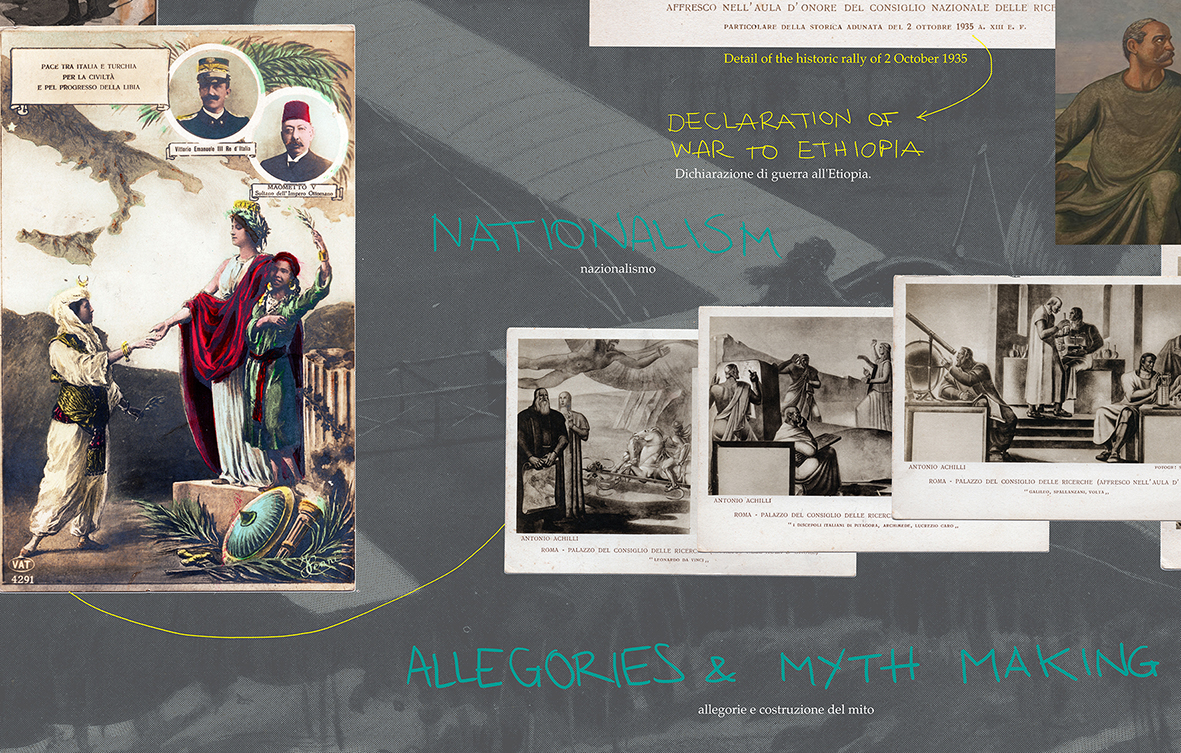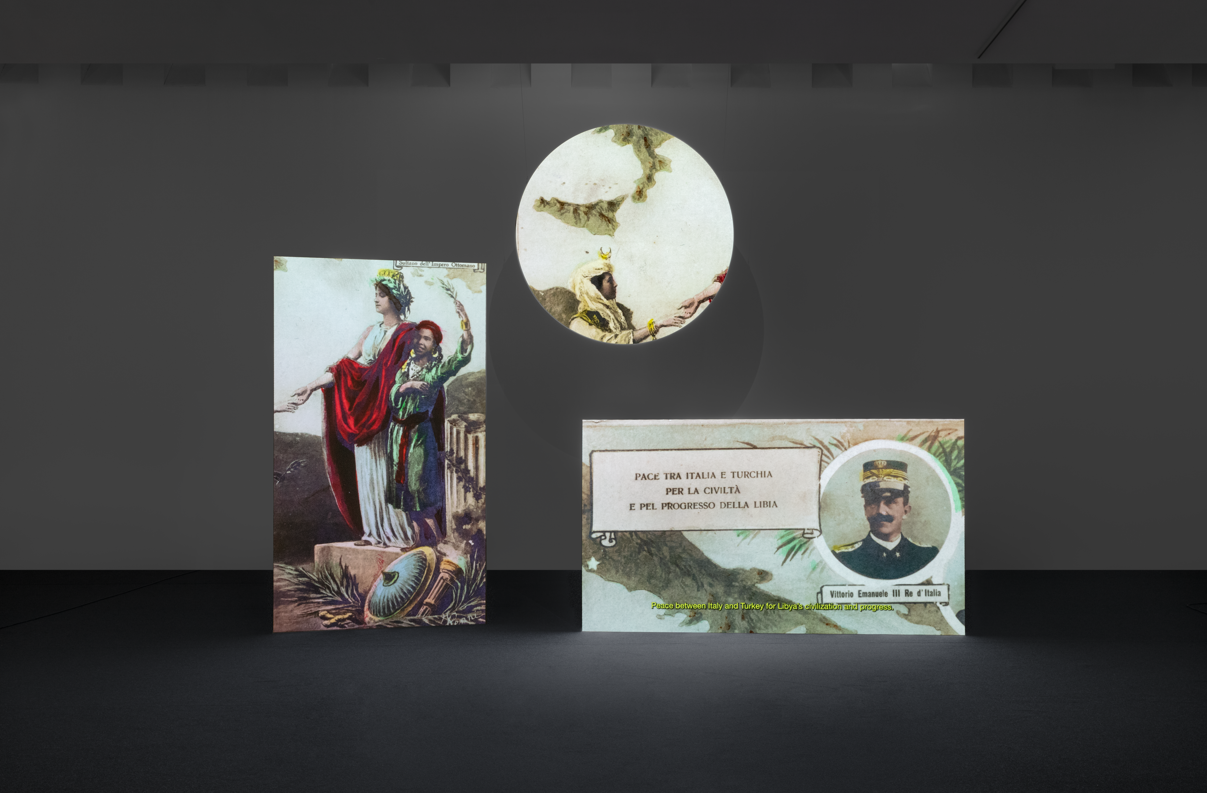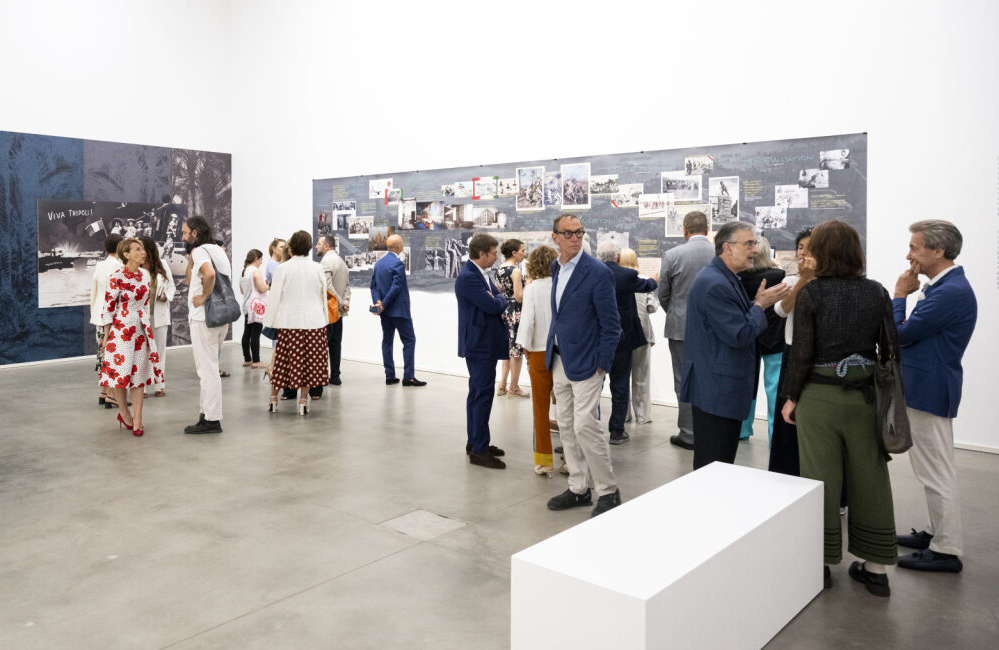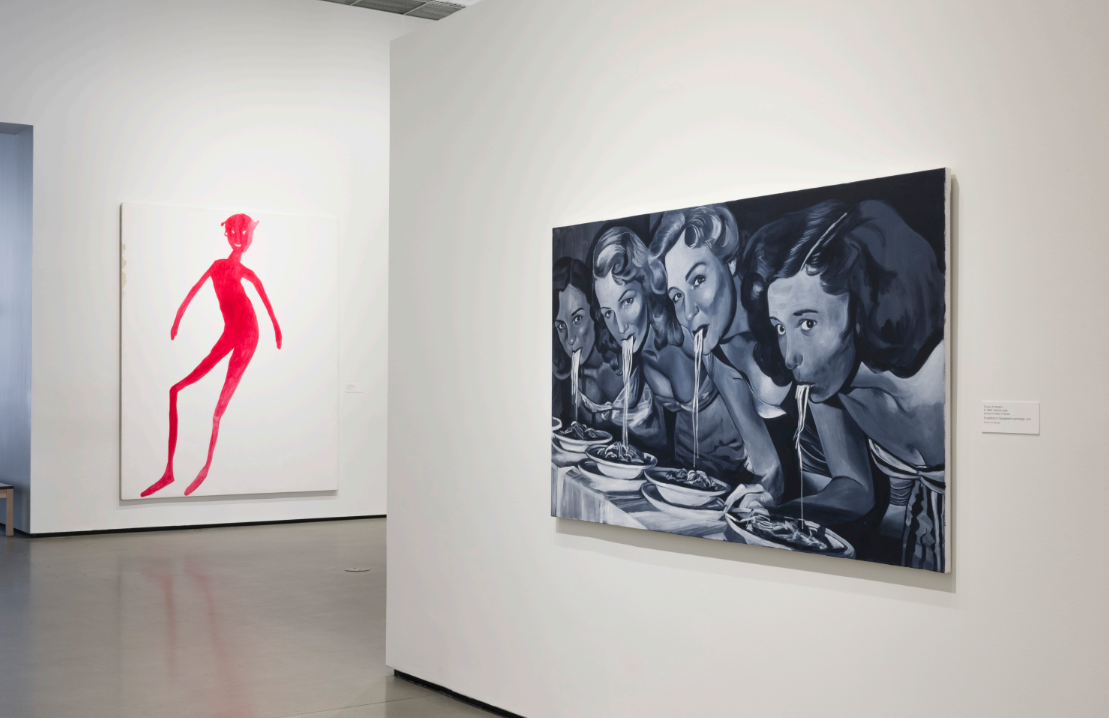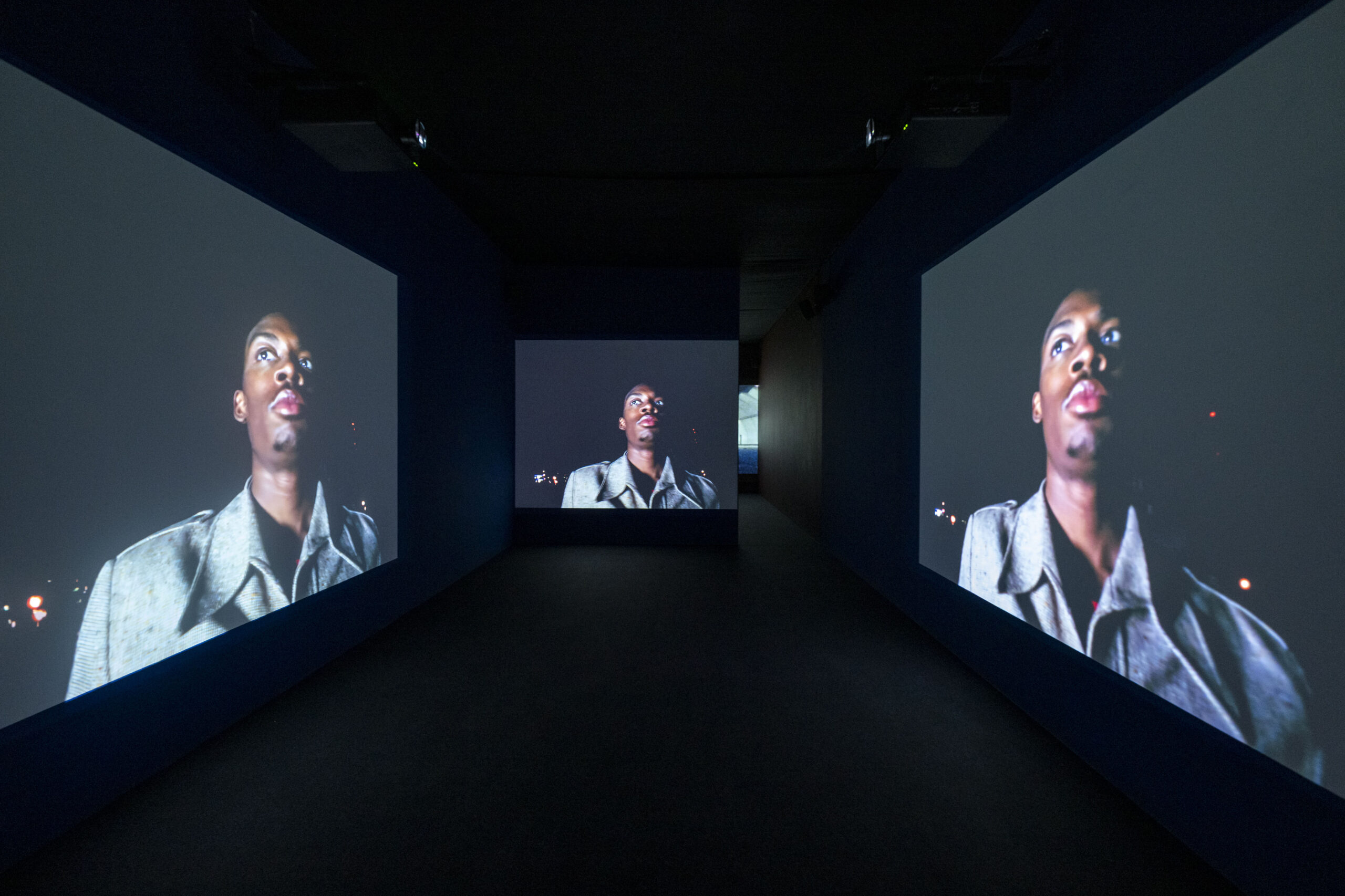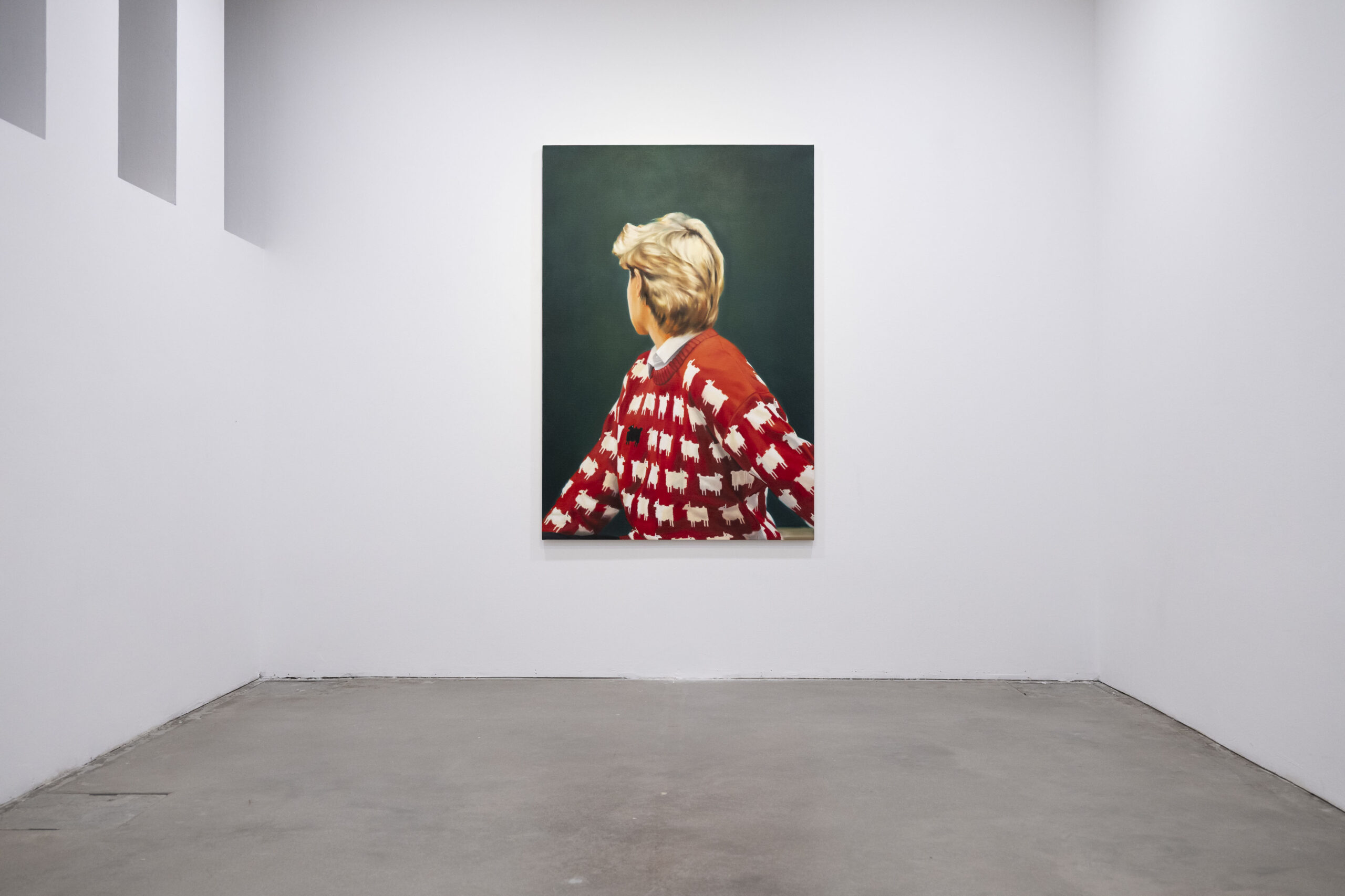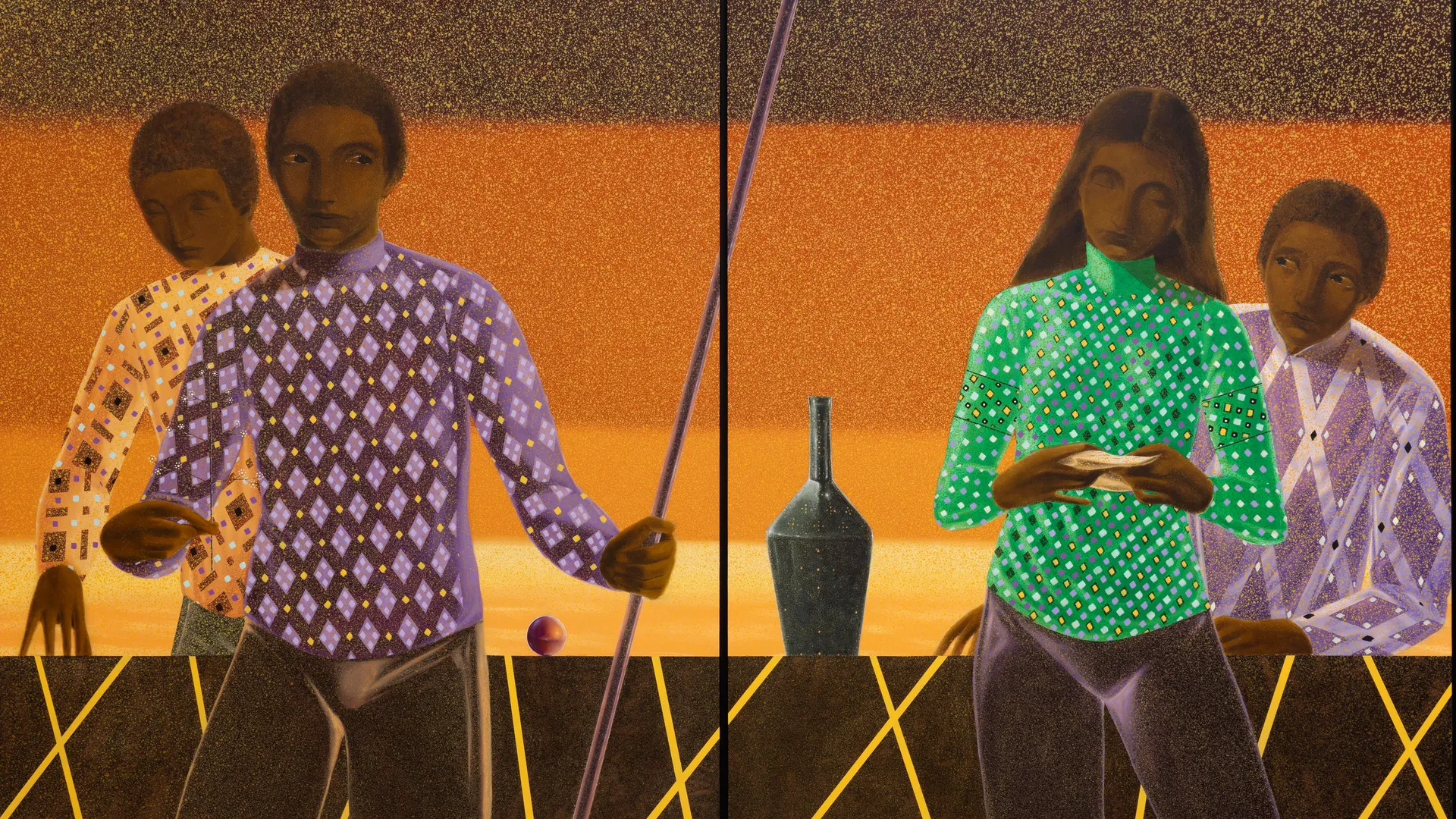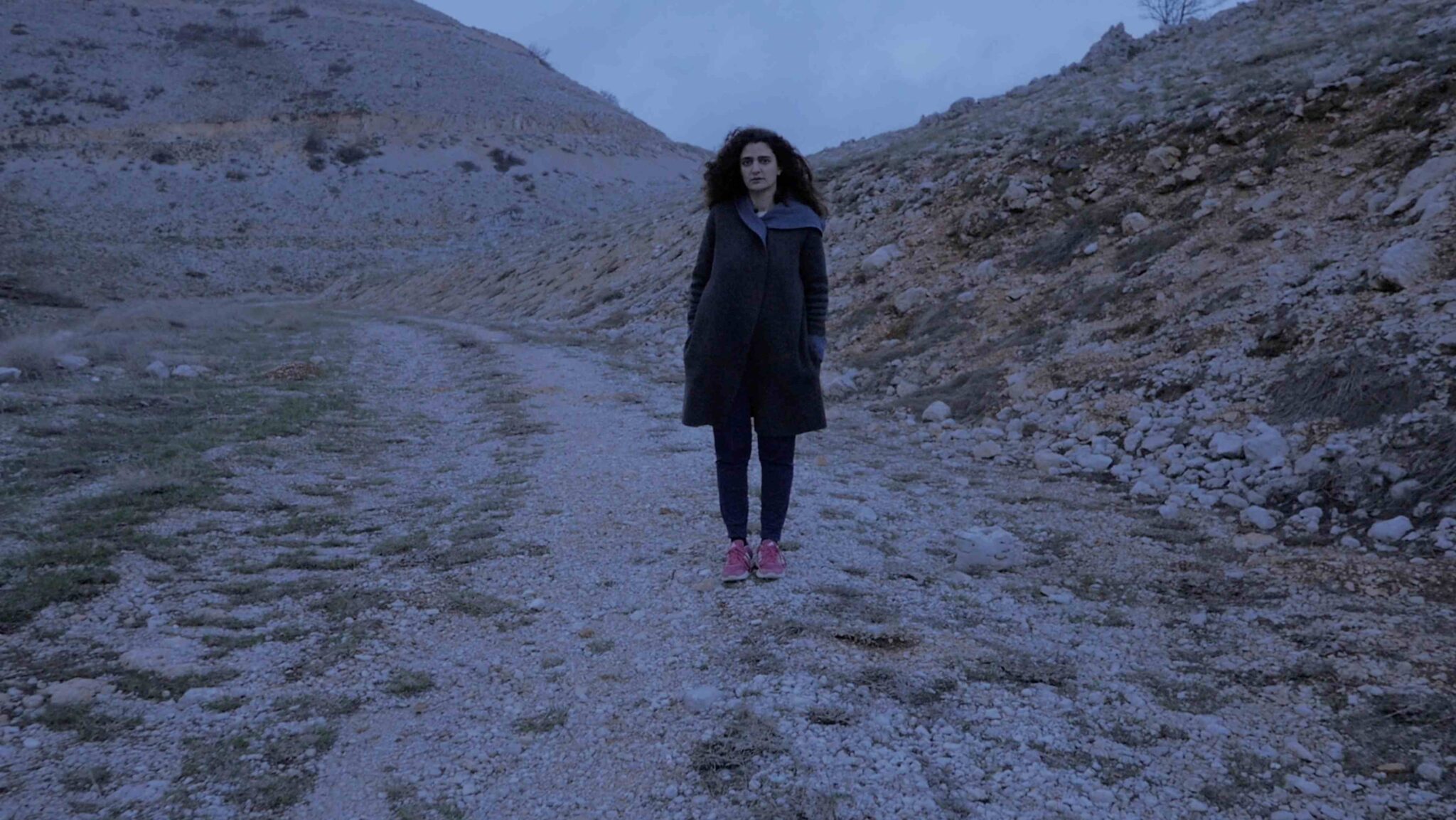Fondazione Sandretto Re Rebaudengo presents I Saw a Dark Cloud Rise, a solo exhibition by Alessandra Ferrini that proposes a meditation on the interconnections between imagination, technology and ideology. It emerges from the artist’s long-term research on the legacies of the colonial violence perpetrated during the Italian occupation of Libya. At the same time, it puts forward a series of open questions and lines of inquiry that form the basis of a new research on the genealogy of Fascist technological fantasies and their genocidal drive.
I Saw a Dark Cloud Rise unfolds over two rooms and revolves around a three-channel video installation by the same title,which was commissioned and produced by Fondazione Sandretto Re Rebaudengo. The first room, a reading room conceived by the artist as a “decompression space”, allows for the materials employed in the video installation to be expanded, connected, and contextualised through a series of diagrams and reading materials.
In the second room, the work I Saw a Dark Cloud Rise investigates the interplay between imagination, technologies of vision and warfare, propaganda and historical imagery, in shaping how notions of progress and conflict are understood and deployed to affirm a collective imperialist agenda and imaginary. It evokes a series of reflections on the centrality of coloniality within Western practices of looking and visualisation, as well as in the formation of collective desires and aspirations.
The exhibition focuses on the often-overlooked years before World War I, specifically, the Italo-Turkish War of 1911-12 that resulted in the Italian colonial occupation of Libya. This conflict marked the first use of aircraft and aerial bombing in military history and the development of new, martial uses of wireless technology. The war in Libya and the year 1911 – the 50th anniversary of Italian unification - are crucial to assess the way the Italian liberal nationalist ideology, built onto the myth of Risorgimento, created the conditions for the emergence of Fascism. On the other hand, it brings to light the international, violent repercussions of this ideology, which led to the onset of World War I and the development of new genocidal technologies to control and annihilate colonial subjects.
By highlighting the impact of the Italo-Turkish War on the development of Futurism and Fascist ideology and aesthetics, the exhibition questions how technology has been mythologised, sacralised, and memorialised. Framing these considerations is a reflection on the power of images and desire in shaping imagination and, consequently, politics. On the other hand, Ferrini proposes recalibrating this imaginal constellation to foster liberatory practices.
I Saw a Dark Cloud Rise was prompted by the artist’s visit to the Sanctuary of Oropa, in the province of Biella (Italy). Dedicated to the Black Virgin of Oropa, it sits on a mountainside, overlooking a valley. Here, a commemorative plaque dedicated to Guglielmo Marconi and erected by the Fascist regime, claims that wireless technology had an almost divine origin: it came to Marconi as he contemplated the valley from this vantage point. In addition, the sanctuary presents a collection of ex-voto artefacts that include a painting referring to the 1911 massacre of Shar al-Shatt, perpetrated by the Italians on the Libyan population, which triggered the first aerial bombing. From these two elements, Ferrini has developed a broader reflection on the “view from above” and what constitutes a distinctly Italian imperialist gaze. Focusing on the notion of ‘white sight’ put forward by Nicholas Mirzoeff, this project highlights the continuities of proto-Fascist ways of seeing and thinking, which keep shaping positivist understandings of progress and technology, as well as readings of Futurist and Rationalist art.
The exhibition represents the outcome of a long collaboration between the Foundation and the artist, developed since 2018 within the framework of different exhibitions and educational projects, often in dialogue with Turin-based organisations dedicated to safeguarding and enhancing historical and political awareness and memory, such as Biennale Democrazia, Polo del 900, Istoreto.
Biografia
Alessandra Ferrini (1984) is an Italian-born, UK-based artist, researcher, and educator. Her work is rooted in lens-based media, anticolonial practices, memory and critical whiteness studies, as well as historiographical and archival methodologies. She explores the enduring legacies of Italian colonialism and Fascism, with a specific interest in the past and present network of relations between Italy, the Mediterranean region, and the African continent. Her practice spans across moving images, installation, and performance-lecture, as well as writing, publishing, and education. Her work Gaddafi in Rome: Anatomy of a Friendship wascommissioned by Adriano Pedrosa for the 60th Venice Biennale (Foreigners Everywhere, 2024) and it premiered at the International Film Festival Rotterdam (IFFR 2025). Ferrini is the recipient of the Maxxi Bvlgari Prize 2022 and the 2017 Experimenta Pitch Award at the London Film Festival. Her first monograph, Like Swarming Maggots: Confronting the Archive of Coloniality across Italy and Libya (Archive Books, 2024) was commissioned by Villa Romana (Florence) thanks to the support of Italian Council (12th edition), in collaboration with Triangle-Astérides (Marseille), Depo (Istanbul), L'Art Rue (Tunis) e MOMus (Thessaloniki). Solo exhibitions include: Museo Novecento (Florence, 2024), Ar/Ge Kunst (Bolzano, 2022), Villa Romana (Florence, 2019). Her work has featured in group shows and international film programmes, including: Kunst Meran (Italy, 2024), De La Cruz Gallery (Washington DC, 2024), KØS Museum (Denmark, 2023), 5th Casablanca Biennale (2022), Manifesta13 Paralléles du Sud (Marseille, 2020), Sharjah Film Platform (UAE, 2019), DEPO (Istanbul Biennal collateral, 2019), 2nd Lagos Biennal (2019), Manifesta12 Film Program (Palermo, 2018), Fondazione Sandretto Re Rebaudengo (Turin, 2018, 2020, 2021). Her work was included in Forms of Desire: Venice, Zineb Sedira’s publication for the French Pavilion at the 59th Venice Biennale (2022) and Everything Passes Except the Past - Decolonizing Ethnographic Museums, Film Archives and Public Space (ed. Jana Haeckel, Sternberg Press, 2021). Her writing appears in international publications, including the Harun Farocki Institut platform, the Journal of Visual Culture and The Entangled Legacies of Empire (edited by Max Haiven et al, Manchester University Press, 2022). She holds a PhD from the University of the Arts London and was a Research Fellow at the British School at Rome (2021-2024).
